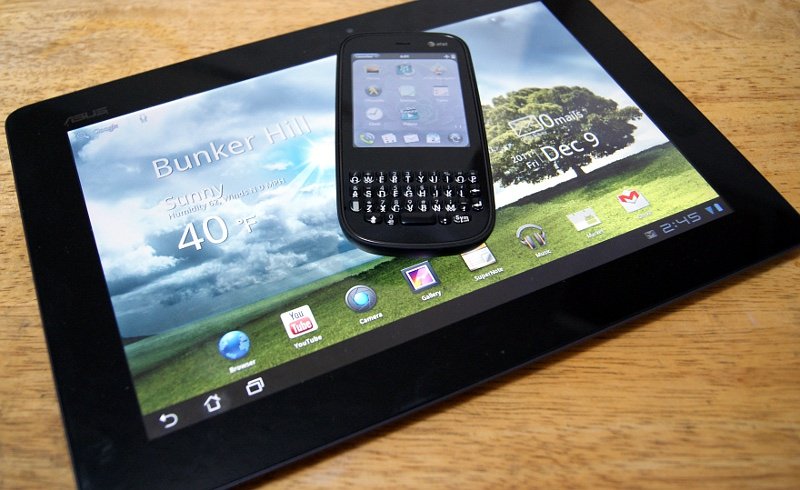What an open-source webOS means for Android

You might have heard -- webOS just got open-sourced today by HP, joining the world of great, free software like Ubuntu, Firefox, and Android. It's a pretty big deal for some people, including all those developers you see doing wonderful things with the software on their electronic devices. HP made the right decision here: let the fate of webOS be in the hands of those who know it best -- like the fellows at webOS Internals. I'll bet there's one hell of a party going on in Oz this evening.
But what does that mean for Android is what we're interested in, because we're Android Central and that's what we do. The answer? Maybe a lot, maybe not so much. While we don't know what open-source license HP plans to release webOS under (remember things like HTC Sense and iOS started as open-source, but the license allowed them to keep code changes to themselves), as it sits now any code that is owned by HP should be made available to manufacturers and developers. Some of the proprietary bits will stay closed, and provided as something that plugs in to the running system, but those are almost always hardware- or network-specific bits, so we're not too concerned.
The big and important parts will be available for everyone from the CyanogenMod team to Motorola to use and develop further. You read that right -- we're all thinking "Wow, the CM guys can port stuff from webOS into CM9!" and we're right, but more important is that so can Google and all the OEMs out there. Soon there will be a few million lines of new code for engineers to look through and cherry pick the best parts from to add to their existing projects -- and that's a damn good thing.
That doesn't mean it will happen though. The cores of Android and webOS are pretty different, and things won't just drop in and work. If it were that easy, we'd already have a bastardized version of Meego, Symbian and Android running on some awesome phone from the far east (and I'd totally be using it). But having the code sitting there so people can see how it's done certainly makes it possible, and very interesting. And to be honest, simply open-sourcing webOS isn't going to save it. If someone (like Google or Samsung) steps in and nurtures it and keeps pumping money and ideas into it, it will keep getting better and better. If nobody but hobbyists cares, it will wither and disappear, even if those hobbyists are talented geniuses like the webOS Internals guys (and gals).
We don't know what will happen here. Just because something can be done doesn't mean it will be done, and with everyone making money hand over fist with Android there isn't a lot of incentive for big changes. I'm sure we'll see some ideas brought over, and someone will start porting webOS to things like the Xoom or Galaxy S II, but the big picture may not change a whole lot. It's going to be an exciting time, and we're lucky that HP made this multi-billion dollar gift to the open source community.
Be an expert in 5 minutes
Get the latest news from Android Central, your trusted companion in the world of Android

Jerry is an amateur woodworker and struggling shade tree mechanic. There's nothing he can't take apart, but many things he can't reassemble. You'll find him writing and speaking his loud opinion on Android Central and occasionally on Threads.